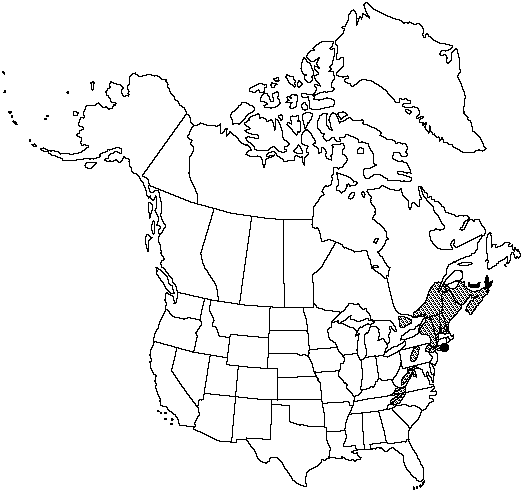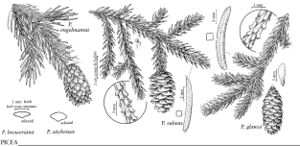Difference between revisions of "Picea rubens"
Silva 12: 33, plate 597. 1898.
FNA>Volume Importer |
FNA>Volume Importer |
(No difference)
| |
Revision as of 18:55, 24 September 2019
Trees to 40m; trunk to 1m diam.; crown narrowly conic. Bark gray-brown to reddish brown. Branches horizontally spreading; twigs not pendent, rather stout, yellow-brown, densely pubescent to glabrate. Buds reddish brown, 5–8mm, apex acute. Leaves 0.8–2.5(–3)cm, 4-angled in cross section, somewhat flexuous, yellow-green to dark green, not glaucous, bearing stomates on all surfaces, apex mostly acute to sharp-pointed. Seed cones 2.3–4.5(–5)cm; scales broadly fan-shaped, broadest near apex, 8–12 × 8–12mm, stiff, margin at apex entire to irregularly toothed. 2n =24.
Habitat: Upper montane to subalpine forests
Elevation: 0–2000m
Distribution

St. Pierre and Miquelon, N.B., N.S., Ont., P.E.I., Que., Conn., Maine, Md., Mass., N.H., N.J., N.Y., N.C., Pa., Tenn., Vt., Va., W.Va.
Discussion
Throughout the Appalachians, trees of Picea rubens are dying, possibly as a consequence of environmental pollution. In eastern Canada this species hybridizes to a limited extent with P. mariana (A.G. Gordon 1976).
Red spruce (Picea rubens) is the provincial tree of Nova Scotia.
